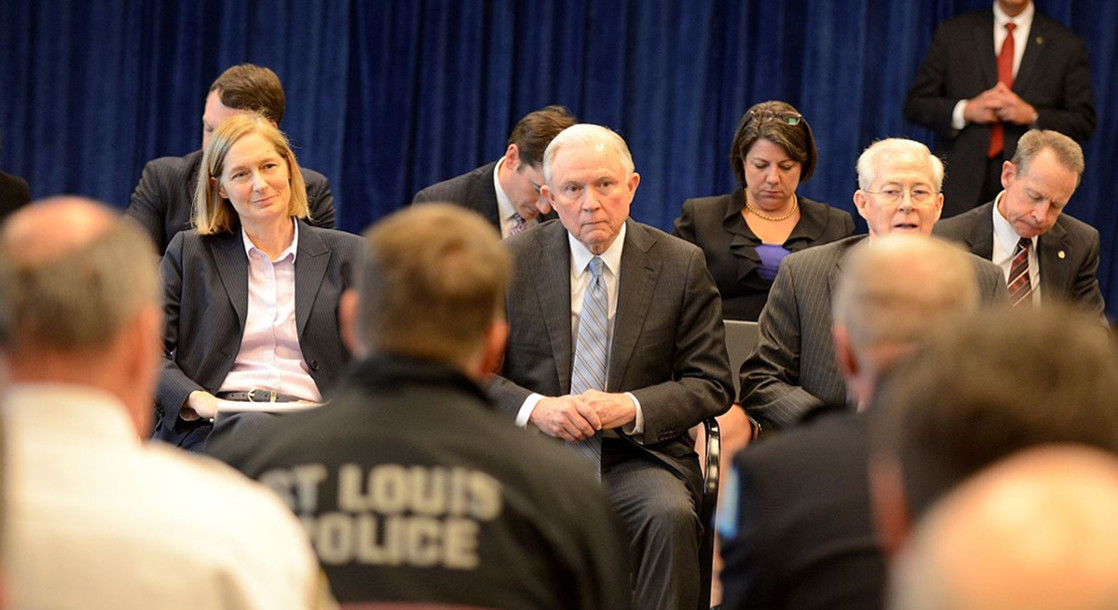Photo via FBI
As the seemingly endless battle between federal and state cannabis laws drags on, officials from four canna-legal states have requested a meeting with Attorney General Jeff Sessions. Their letter, signed by state treasurers from California, Illinois, Oregon, and Pennsylvania — along with several cannabis advocacy groups including the National Cannabis Industry Association — argues that Sessions is harming public safety by discouraging banks from dealing with canna-businesses. This state of affairs consequently forces cannabis companies to deal in large quantities of cash, making them vulnerable to robbery.
“In this incredibly divisive time, the issues surrounding the legalization of cannabis provide a unique opportunity for policymakers, regulators, and law enforcement officials from all sides to meet and reach a consensus,” the letter reads, according to Marijuana Moment. “These states represent a true cross-section of America. This is not just a blue state phenomenon, but includes purple and red states in every corner of our country. A majority of Americans now live in states where they have decided to legalize cannabis.”
Federal law prohibits financial institutions from opening accounts for any business that deals with a federally-prohibited drug like cannabis. During the halcyon days of the Obama administration, former Attorney General Eric Holder issued the Cole memo, which directed federal authorities not to interfere with state-legal cannabis operations. Throughout last year, the number of banks willing to take the risk of working with canna-businesses slowly grew, but this January, current Attorney General Jeff Sessions revoked the Cole memo, once again raising anxiety in the industry over the possibility of federal interference.
In light of Sessions' decision to ramp up his personal war against cannabis, state treasurers are hoping to meet with him to address concerns that this change will affect banks' ability to serve canna-businesses. “We believe we can work together and achieve a solution that recognizes that more and more Americans are living in states where they have decided to legalize cannabis while balancing the important law enforcement issues the Cole Memos [sic] tried to account for,” the treasurers wrote.
Last year, California Treasurer John Chiang established an 18-member Cannabis Banking Working Group to dream up new possibilities for resolving the industry's money problems, including the creation of a public bank designed specifically to serve the state’s cannabis industry. This month, a bipartisan group of lawmakers introduced a cannabis-related amendment to a federal Senate bill to repeal the financial industry regulations introduced by the 2010 Dodd-Frank Act. This amendment would restrict federal authorities from prohibiting or penalizing any financial institution that chooses to serve a state-legal cannabis company.
“Whether cannabis should be legal is not relevant to the simple fact that it now is in more than half of the states,” the letter continues. “With legalization taking place, there are sound public policy reasons for providing financial institutions and other entities that do business with the cannabis industry some comfort that they will not be prosecuted, or lose access to customer assets, simply for banking this industry. Among the policy positives that could result is greater public safety and more efficient collection of tax revenues.”











